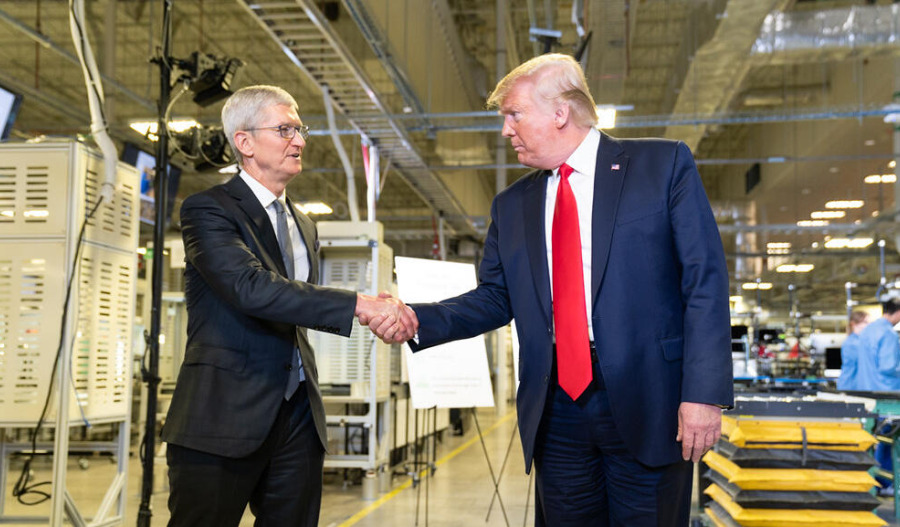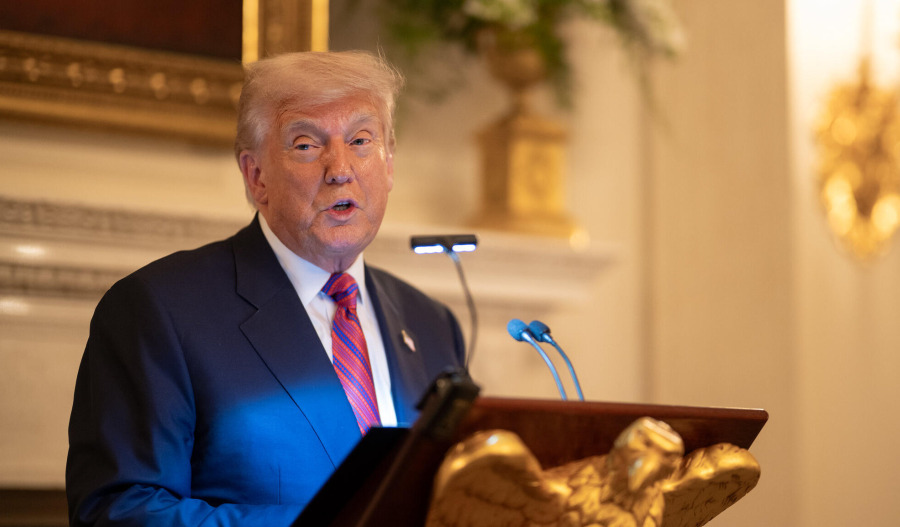United States stock futures ticked higher late Wednesday (Thursday AEST) as investors weighed President Donald Trump’s call for a 100% tariff on imported semiconductor chips, while monitoring a wave of after-hours corporate earnings.
By 9:15 am AEST (11:15 pm GMT), futures tied to the Dow Jones, S&P 500, and Nasdaq 100 each rose around 0.2%, continuing momentum from a positive session on Wall Street.
The S&P 500 had climbed 0.7%, the Nasdaq advanced 1.2%, and the Dow closed 0.2%, higher.
Trump announced late Wednesday that the U.S. would impose a 100% tariff on imported chips, exempting companies that are “building in the United States”. The move came just hours after Apple reaffirmed plans to invest an additional US$100 billion in US suppliers over the next four years, adding to a $500 billion pledge made earlier this year.
Apple climbed another 3% in extended trading, following a 5% gain during the regular session.
Among reporting companies, Duolingo surged 14% after the language app maker beat second-quarter expectations.
E.l.f. Beauty fell over 13% after reporting a 30% drop in profits due to new China tariffs. The company withheld full-year revenue guidance, citing tariff uncertainty, and instead guided only for the first half of the fiscal year.
DraftKings gained 2% after reporting Q2 earnings per share of $0.30 on $1.51 billion in revenue, surpassing forecasts. It reaffirmed its 2025 revenue outlook, expecting to hit the upper end of the $6.2–$6.4 billion range.
Airbnb dropped 7% as its third-quarter revenue forecast of $4.02–$4.10 billion came in mixed, slightly below FactSet’s $4.05 billion consensus. This overshadowed second-quarter earnings and revenue beats.
DoorDash jumped 6% after it posted Q2 EPS of $0.65 on $3.28 billion in revenue, beating expectations of 44 cents and $3.16 billion, respectively.
Investors also continue to monitor broader trade policy developments. Earlier Wednesday, Trump imposed an additional 25% tariff on imports from India, doubling total levies to 50%. The president cited India’s ongoing purchases of Russian oil as the reason, reiterating his warning to nations engaging in trade with Moscow unless a Ukraine peace deal is struck by September.
Looking ahead, traders will focus on Thursday’s release of weekly jobless claims data, along with second-quarter reports on productivity and unit labour costs—key inputs into inflation and wage dynamics.



